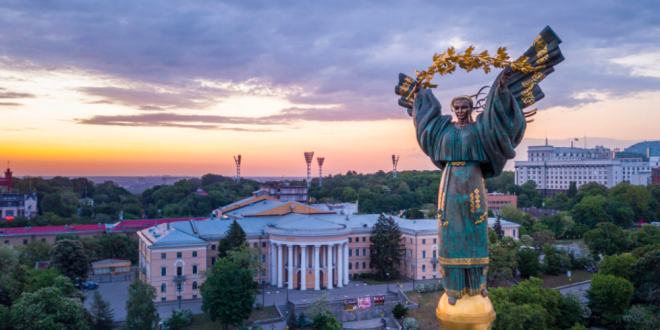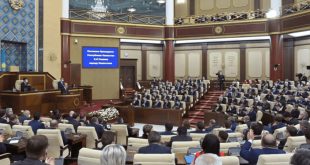Despite the Ukraine Gambling Law securing its parliamentary approval in 2020, recent regulatory developments have brought confusion to CIS markets newest jurisdiction.
Ilya Machavariani, Managing Partner of 4H Agency and a legal expert for CIS markets, provides SBC readers with a full breakdown of on-the-ground developments regarding Ukraine Gambling Law and its passage into full existence.
___________________
SBC: Confusion has surrounded the first licenses issued by Ukraine’s new regulatory body — The Commission for Regulation of Gambling and Lottery (GRGL). Is Ukraine’s new gambling market live and can operators launch their services under the Gambling Law mandate?
Ilya Machavariani: The Ukrainian market has gotten itself into a very special place. The state of the market depends on who you ask and who does the asking. If you ask the Ukrainian regulator — CRGL — they would tell you they have been hard at work processing the incoming stream of licensing applications to launch the market as soon as possible. If you ask companies who submitted or about to submit their licensing applications they would tell you that they are looking forward to going live, but are wary of the consequences of operating without the certification, required by Law.
This question was the most frequently asked at the conference organized by Ukrainian Gaming Week recently in Kyiv but unfortunately, it seems there’s no one to give a definitive answer as to when and how the gambling equipment would be certified. Moreover, there’s a question of passing the tax code amendments relevant to gambling yet to be voted on by the Ukrainian government.
Looking at the current state of the Ukrainian gambling market I would make a rather bland assumption it’s being driven by a startup philosophy “move fast and break things”. The good news is that at the moment, the CRGL is focused more on launching the market ASAP and less on enforcing compliance.
SBC: Has the regulatory remit of the GRGL been settled? What are the agencies duties with regards to governing the market?
IM: There are several duties, all of which are outlined in the Cabinet of Ministers’ resolution with which the Commission was established. Currently we observe that the Commission is acting along the lines of what was defined in the Resolution, precisely under sections 3 and 4 as it has already issued the licensing conditions, drafted the list and the procedure for the certification of gambling equipment, and created the Expert Consulting Council to help it further the process of setting up regulatory frameworks.
According to Boris Baum, First Deputy Head of the Expert Consulting Council for CRGL, the Commission is involved with several government bodies including the Ministry of Justice, National Accreditation Agency of Ukraine in its work to setup a certification program for gambling equipment, but it might take another 6 to 10 months of a bureaucratic process to get the job done.
SBC: Has there been any progress in terms of Ukraine law-makers settling on a final tax framework?
IM: The topic of taxation has been getting hotter and hotter since the time the Commission issued its first license. Indeed, not only the issue of missing certification programs is holding back the licensed operator of launching officially in a legal Ukrainian gambling market. The government has to pass certain amendments to the tax code to enable the licensee to start the proper operation. For the past two weeks, talks were surrounding a Draft Law 2713-d that proposed the following key changes to the tax code:
- Setting a gambling tax to 10% of GGR;
- Cancelling the tax on personal winnings under 48k UAH. Winnings over 48k UAH are taxed at 19.5% (18% PIT tax rate and 1,5% army levy);
- Cancelling the obligation to pay triple license fee until the state online monitoring system is launched.
In a recent webinar on Ukraine, First Deputy Head of the Expert Consulting Council for CRGL Boris Baum drew everyone’s attention to the fact that the final vote on the draft law 2713-d is set to March 22. If passed successfully, Ukraine would make another big step towards the launch of what looks like a very lucrative market, but Verkhovna Rada has already failed the preliminary vote on this Draft law, so I would suggest to keep our eyes open for more news to come.

SBC: Mirroring the Netherlands and Germany, can the gambling sector expect any last-minute technical and compliance amendments – delaying the speed of progress?
IM: Honestly, I think it’s too soon to talk about anything last-minute, as we already observe a threat to the speed of progress from the standpoint of passing the amendments to the tax code and adopting a procedure for gambling equipment certification. But then again, and this is what makes Ukraine quite different from the mentioned countries, the Regulator has a razor-sharp focuse on launching the market, it invites local and foreign companies to cooperate and it shows that it’s ready to follow the opinion of market experts, a provision to cancel the triple license fee would be a good example here, as from what I know, this was something that Commission proposed to add to the Draft Law quite recently.
SBC: Observing events at a ground-level, what cultural intricacies should stakeholders be aware of with regards to the development of Ukraine’s Gambling Law?
IM: Ukraine has a very rich cultural background. Historically, this has been a land of entrepreneurs and risk takers. With borders having become more open, the talent exchange began to flourish. As a result we got a lot of gifted, competent, tech- and English-savvy people working in the gambling industry elsewhere but Ukraine. And inside the country we have a good deal of tech entrepreneurs and software service providers exporting their labor and goods for the benefit of the international gambling companies.
Legalizing and regulating the industry here opens up a local pool of opportunities for professionals with experience of working for the world-renowned brands and when it comes to software developers and service providers having a local b2b license would insure them against unsanctioned actions from law enforcement representatives. Up until the passing of the gambling law, cases of special law enforcement groups breaking into software developers offices were not uncommon.
We hear the message of the Commission welcoming the cooperation with foreign companies to create fair and competitive market conditions while at the same time give the right amount of attention to the norms and regulations aimed at protecting the Ukrainian player.
The latter is yet to be adopted in the form of the technical guidelines for the certification of the online system of the gambling operator, but at least we are given the understanding from the members of the Commission that they treat this with very high priority.
SBC: As a key concern for leadership and operations, will Ukraine’s market come with a heavy costs attached to compliance measures?
IM: As you might have already picked up from what I’ve said so far, the situation with the regulatory landscape in Ukraine is fairly volatile. Up until this week companies who seek Ukrainian gambling license had an understanding that they would have to pay 3 times the price of the license until the state online monitoring system is launched.
Now, according to key people driving the regulation in the country, a draft law contains new provisions aimed at cancelling the triple license costs. The overall mood in the government halls is not to support this draft law, but this only begs more questions on the destiny of the legal and regulated market in the country.
SBC: Do you remain confident that Ukraine will achieve its 2021 objectives of launching a fully regulated gambling marketplace
IM: At this point my position as well as the position of our agency is to observe where the market is going, help the regulator when it reaches out to us and offer comprehensive consultations to our clients who have already decided to start working in Ukraine. We are doing this because we retain a certain level of confidence that Ukraine will launch its market in 2021.
Unfortunately, I cannot confidently say when everything would fall into place, but we observe actions taken by the Commission aimed at straightening and speeding up the process of getting everything necessary to eventually launch in 2021.
SBC: Finally and most importantly how do you feel Ukraine is different to other European and CIS markets – is there any relative benchmark for operators to compare it too?
IM: Being a CIS country with a big chunk of shared history with countries like Belarus, Kazakhstan, Georgia, Russia, etc. I would say Ukraine is simultaneously a collection and reflection of these markets when it comes to players (soccer is the most popular game in the country, same as in Russia and Belarus, for instance).
When it comes to business, it’s difficult to compare Ukraine to other CIS countries as it only moves towards the legalized and regulated market. When Ukraine launches land-based casinos it would make sense to compare the market to the one Georgia or Belarus has, when it launches sportsbook then it would make sense to compare it to the Russian sports betting market, where I presume we would observe relatively comparable figures as to what players prefer the most with the only difference being scale of the operation and the sheer number of players that Russian can boast at the time.
To conclude, I do believe that Ukraine would move in its own unique way once it fully launches the market. I want to be optimistic, but I’m also weary of the risks hiding in the bureaucratic process of getting every state stakeholder on board and everything ready for the launch. Still a lot of ground to cover, problems to solve, connections to make and business to do. The process did become more complicated, but nothing worthwhile was easy to achieve.
I am hopeful that Ukraine would make its gambling legalization story into a successful one in 2021, but I also understand operators who have chosen to wait and see how things would eventually turn out. Our agency watches the situation in Ukraine very closely and we are eager to help anyone interested in entering Ukrainian gambling market.
_______________
lya Machavariani – Managing Partner and CEO – 4H Agency










